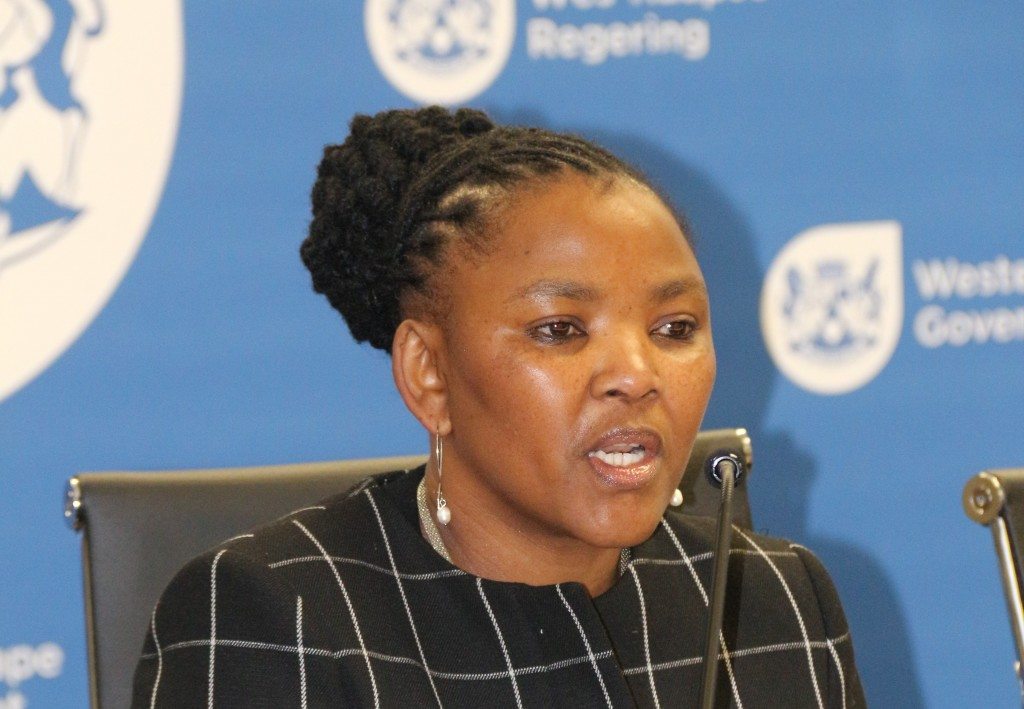The Western Cape Health Department has committed to using the recent allocation of over R20 billion to improve the quality of services provided at state-owned health facilities. This will be achieved through implementing several projects that the department hopes will restore confidence in the service, which has received unrelenting criticism.
The 2019/2020 Budget for the Department of Health that was recently tabled before Provincial Parliament has allocated 37% of the total budget to health. According to Western Cape Health MEC Dr Nomafrench Mbombo, this is an indication of how seriously government is looking to better the service.
State-owned hospitals have been criticized for being under-staffed and for having patients experiencing long waiting periods. But the MEC said it’s not just the increase in the number of patients we see, but also how they present. Mbombo went on to highlight that doctors prioritize critical patients, which could slow down the number of patients tended to on any given day.
“The conditions in every hospital is different and the level of expertise required changes all the time. For example, patients that come in for chronic check-ups in comparison to a few patients coming in with gunshot wounds who would require the specialist services of four or five doctors.”
The MEC explained that apart from having a high demand to meet, the nature of treatment required has changed due to a rise gangsterism and interpersonal violence in the Western Cape.
“I recall a recent case in at Groote Schuur emergency, where a 16-year-old had eight gunshots and to save that youngsters life additional resources (were needed). But meanwhile, while they’re saving his life, the other children, who may not necessarily be present with trauma but with other emergencies, might end up waiting longer.”
The MEC highlighted that due to the nature of injuries, there are more processes that need to be followed. Mbombo explained that in the case that a patient dies as a result of gunshot wounds, which has seen an increase in the Western Cape, it is considered an “unnatural death” which will require autopsies.
To accommodate this rise, the department has invested R135 million for the Human Resources Capacitation Grant, which will work to appoint community service medical officers and medical interns in order to lessen the workload.
“In circulation we have about 500 (and something) junior doctors but they have to be deployed at strategic hospitals because they must still work under supervision.”
She also noted the appointment of 2 additional specialists, 6 Forensic Pathology Officers. Forensic assistant interns have also increased from 9 in 2017/18 to 50 in 2019/20.
Following complaints of the state of hospitals, the MEC reported that the department has also allocated R1.2 billion toward infrastructure projects which can improve access to healthcare in the province.
“The construction of Gansbaai Clinic, Laingsburg Clinic, Caledon EMS communication centre, Victoria Hospital EC, Swartland Hospital EC, Helderberg Hospital EC and Observatory FPL is underway. De Doorns Ambulance station, Klipfontein Regional Hospital (in phase 3 of the project where service provider has been appointed), the new Avian Park Clinic and Psych capacity at Eerste River Hospital, Khayelitsha Hospital, and New Somerset Hospital are all in the planning phase.”
The MEC noted that the digitizing of patient records across all facilities and implementation of initiatives should assist in reducing waiting times at facilities; theatres and Emergency Centres, should improve efficiency.
Complaints have also been received regarding the attitude and professionalism of health care practitioners, majority of which are nurses. Mbombo however said that more compliments are received than complaints, but emphasized that the nature of complaints does not make it easy for the department to remedy the situation.
“In some instances you’ll find complaints become generalized like “at that clinic they’re all bad workers or racist” et cetera. So, as an employer, it becomes difficult to hold one person to an account. That’s why there is a hotline to make reports and that’s why we appoint a community member as part of hospital board to manage complaints “
Relating to the patients complaining of ill-treatment, the MEC said that the department hopes to rectify this through the Management Efficiency and Alignment Project (MAEP) which aims to increase collaboration and coherence to an ethical model.
“This budget must be able to at least preserve the dignity. We might not be able to reduce some of the social ills in terms of the injuries and so forth, but the management efficient and alignment project is about when you protect the clinical service at the expense of having to realign the whole of your administrative part of it to give more support.”
Support services for staff members will also be addressed.
“We raise the issue of the pressure that they (doctors and nurses) have- with the number of people they see and a disease profile that changes – it impacts you. In this budget we are in the process of appointing more people, but even then, it won’t be able to close that gap.”
She noted that intra-personal relations between patients and their health care professionals should always be a dignified interaction.
“The issues that matter to the heart is what we expect our health professionals to espouse- our values, the caring, respect, dignity, the integrity. Because remember that health is a human right and we want to treat people with respect and dignity. VOC






 WhatsApp us
WhatsApp us 

